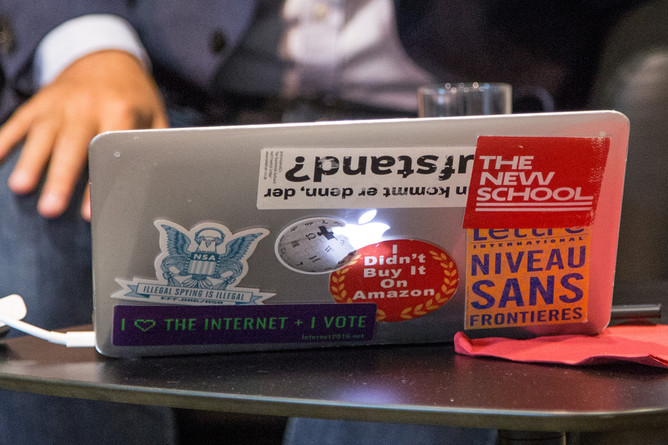The “sharing economy” now enables to us to access all manner of things we might need through connecting with others online. In this season that might have included sourcing turkey from a local farm, a chauffeured car to collect the relatives, a week at a stranger’s flat somewhere warm, a few hours with an industrial-strength food mixer and a range of other physical and intellectual goods.
Some of these services may be offered without payment, but many are old business models in new forms, brokered or managed across online systems that help match people up for efficient use and allocation of resources. Given that much of this activity involves hiring, renting and even buying, many of us have distanced ourselves from the term sharing for describing these emerging practices of networked resource management. For instance, the “collaborative economy” and “peer-to-peer exchange” are both popular alternatives.
What is new in these networks is that people with a common goal can easily find each other and the resources they seek and thus meet their needs in new ways. A novel quality is that it is possible to do things at a remove. The trust we place in letting others into our lives no longer revolves round mutual acquaintance but can be forged through validation tools, using networked financial identification systems. Payment can be made through the same network.
We can turn unused rooms and car seats into profit. And brokering these transactions across the internet allows them to scale quickly, making for a new class of technology-dependent business. All these functions are features, not of sharing per se, but of using networks to connect up people and things.
Applying the idea of “sharing” to commercial services feels wrong. The related question is: why is it in the interests of commercial services to use this idea at all?
In interviews with people setting up platforms (both digital, such as a shared gift-buying service, and physical, like a community garden), sharing was underpinned by cooperative principles. There was a strong emphasis on the social value and doing things together. These are some examples of people’s thoughts:
I view it as me having shared my skills and my time for no financial payment, but in return for having an interesting neighbourhood … it’s about exchange for things other than cash.
The value of sharing is people connecting. It goes beyond: ‘I’ve got a spare drill, you can use that’. In sharing my drill with you, I’m connecting with you and if I’m connecting with you, I’ve got potentially a sense of identity with a community of people or a neighbourhood.
Sharing space, tools, time and skills is crucially built on less tangible sharing of care, responsibility, vision, values and – certainly – trust. In these accounts, sharing is linked to what makes life worth living.
And who wouldn’t want that in their marketing?
When sharing’s lucrative
The neologism “share-washing” has been coined to deal with businesses that capitalise on our emotional attachment to the idea of sharing. The cynical use of community values to sell paid-for services is all around us.
Look at the labour exchange service Taskrabbit. The site description starts with a personal experience: a night in Boston in 2008 when owner Leah Busque realised she was out of dog food and didn’t have time to buy it herself before a dinner date with her husband. She dreams of a neighbour, already at the shop, helping out. The rhetoric is of neighbourliness and care: “It’s an old-school concept – neighbours helping neighbours – reimagined for today.”

Making money from other people’s warm fuzzies.
The site enables someone seeking help to find a local person looking for work and employ them at the lowest possible rate. A nice interface and weakly regulated market economics make it painless for people to exploit someone more economically vulnerable. Taskrabbit conducts identity checks, criminal record checks, an interview and training session. This is clearly no longer coordinating tasks with your neighbours to help each other – despite the rhetoric of the founding narrative. And Busque takes 20% of every interaction through the site, supported by US$40m of venture capital.
So, despite enthusiasm for the idea of efficient resource use, many people remain unhappy that digital services from the free Couchsurfing to the paid-for AirBnB; from online investing platforms to help for refugees are being lumped together.
Maybe 2016 will see commercial services get their own term for the networked platforms that are enabling new forms of transaction. In the meantime, can we have our word back, before we forget what it used to mean?
 Ann Light receives funding from various research councils, including the EPSRC, which supported this study through a Digital Economy network on Sustainable Society.
Ann Light receives funding from various research councils, including the EPSRC, which supported this study through a Digital Economy network on Sustainable Society.
Ann Light, Professor of Design & Creative Technology, University of Sussex
This article was originally published on The Conversation. Read the original article.




 OpenAI Expands Enterprise AI Strategy With Major Hiring Push Ahead of New Business Offering
OpenAI Expands Enterprise AI Strategy With Major Hiring Push Ahead of New Business Offering  Nvidia CEO Jensen Huang Says AI Investment Boom Is Just Beginning as NVDA Shares Surge
Nvidia CEO Jensen Huang Says AI Investment Boom Is Just Beginning as NVDA Shares Surge  Amazon Stock Rebounds After Earnings as $200B Capex Plan Sparks AI Spending Debate
Amazon Stock Rebounds After Earnings as $200B Capex Plan Sparks AI Spending Debate  Nvidia Nears $20 Billion OpenAI Investment as AI Funding Race Intensifies
Nvidia Nears $20 Billion OpenAI Investment as AI Funding Race Intensifies  Nvidia, ByteDance, and the U.S.-China AI Chip Standoff Over H200 Exports
Nvidia, ByteDance, and the U.S.-China AI Chip Standoff Over H200 Exports  Baidu Approves $5 Billion Share Buyback and Plans First-Ever Dividend in 2026
Baidu Approves $5 Billion Share Buyback and Plans First-Ever Dividend in 2026  Nvidia Confirms Major OpenAI Investment Amid AI Funding Race
Nvidia Confirms Major OpenAI Investment Amid AI Funding Race  Google Cloud and Liberty Global Forge Strategic AI Partnership to Transform European Telecom Services
Google Cloud and Liberty Global Forge Strategic AI Partnership to Transform European Telecom Services  SpaceX Seeks FCC Approval for Massive Solar-Powered Satellite Network to Support AI Data Centers
SpaceX Seeks FCC Approval for Massive Solar-Powered Satellite Network to Support AI Data Centers  Jensen Huang Urges Taiwan Suppliers to Boost AI Chip Production Amid Surging Demand
Jensen Huang Urges Taiwan Suppliers to Boost AI Chip Production Amid Surging Demand  SoftBank and Intel Partner to Develop Next-Generation Memory Chips for AI Data Centers
SoftBank and Intel Partner to Develop Next-Generation Memory Chips for AI Data Centers  Anthropic Eyes $350 Billion Valuation as AI Funding and Share Sale Accelerate
Anthropic Eyes $350 Billion Valuation as AI Funding and Share Sale Accelerate  TSMC Eyes 3nm Chip Production in Japan with $17 Billion Kumamoto Investment
TSMC Eyes 3nm Chip Production in Japan with $17 Billion Kumamoto Investment  Tencent Shares Slide After WeChat Restricts YuanBao AI Promotional Links
Tencent Shares Slide After WeChat Restricts YuanBao AI Promotional Links  Oracle Plans $45–$50 Billion Funding Push in 2026 to Expand Cloud and AI Infrastructure
Oracle Plans $45–$50 Billion Funding Push in 2026 to Expand Cloud and AI Infrastructure  SpaceX Updates Starlink Privacy Policy to Allow AI Training as xAI Merger Talks and IPO Loom
SpaceX Updates Starlink Privacy Policy to Allow AI Training as xAI Merger Talks and IPO Loom 
































